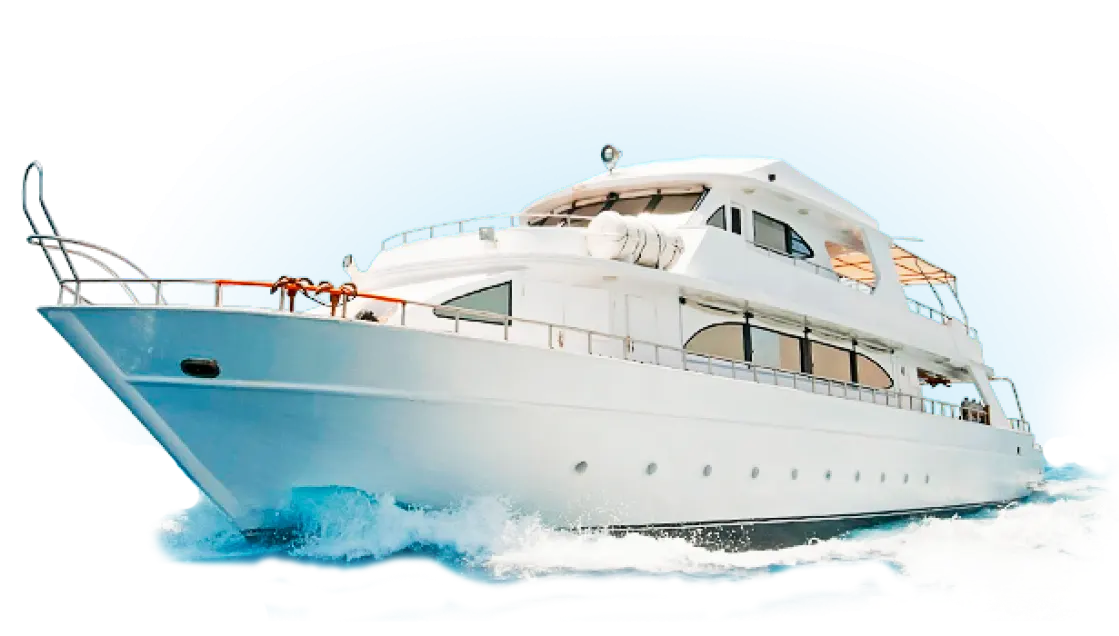When damage occurs to your yacht, knowing how to properly file and manage an insurance claim can make the difference between a smooth resolution and months of frustration. At Casey Insurance, we’ve guided thousands of yacht owners through the claims process, and we understand that dealing with vessel damage is stressful enough without navigating complex insurance procedures alone.
The yacht insurance claims process may seem daunting, but understanding each step empowers you to protect your interests and ensure fair settlement. No matter you’re dealing with storm damage, collision, theft, or mechanical breakdown, following the proper claims procedures protects both your vessel and your financial investment.
Immediate Steps After an Incident
The first few hours after discovering damage to your yacht are critical for both safety and claims success. Your immediate response sets the tone for the entire claims process and can significantly impact your settlement outcome.
- Ensure Safety First
Before considering insurance matters, verify that all persons aboard are safe and accounted for. If the incident occurred while underway, follow proper maritime distress procedures and contact the Coast Guard if assistance is needed. Document any injuries immediately, as personal injury claims often have different requirements and shorter reporting deadlines than property damage claims.
- Secure the Vessel
Take immediate steps to prevent further damage to your yacht. This might involve pumping bilges, covering exposed areas, or arranging emergency towing to a safe harbor. Your yacht insurance policy typically requires you to take reasonable steps to mitigate additional damage, and failure to do so could jeopardize your claim. Keep receipts for any emergency services or temporary repairs, as these are usually covered under your policy’s emergency assistance provisions.
- Contact Authorities When Required
Certain incidents require official reports that become crucial documentation for your insurance claim. Contact local marine police for theft, vandalism, or suspicious activity. For collisions involving other vessels or property, exchange information similar to an automobile accident and file reports with appropriate authorities. Environmental incidents, particularly fuel spills, must be reported immediately to prevent serious legal and financial consequences.
Step-by-Step Yacht Insurance Claims Filing Process

Filing your yacht insurance claim properly from the beginning prevents delays and ensures you receive fair compensation for your losses. The claims process follows a logical sequence, but timing and documentation are critical at each stage.
1: Report the Claim Promptly
Contact your insurance company or agent within 24-48 hours of discovering the damage, even if you’re not certain you’ll file a claim. At Casey Insurance, our emergency claims hotline operates 24/7 because marine incidents don’t follow business hours. When reporting, provide basic incident details, but don’t speculate about causes or accept blame. Simply state the facts as you know them.
2: Complete Initial Documentation
Your insurer will provide claim forms that must be completed thoroughly and accurately. Take time to provide detailed, factual information about the incident, vessel operation at the time of loss, and all persons involved. Incomplete or inaccurate initial documentation often causes significant delays later in the process.
3: Gather Required Documentation
Insurance companies require specific documentation to process your claim effectively. Collect your insurance policy, vessel registration or documentation, recent survey reports, and maintenance records. If the incident involved other parties, gather their insurance information and contact details. For theft claims, provide police reports and any security footage or witness statements available.
Essential Documentation and Photography for Boat Insurance Claim Filing
Proper documentation serves as the foundation for successful yacht insurance claims. In marine environments where evidence can be quickly destroyed by weather or tides, immediate and thorough documentation is particularly crucial.
Photography Best Practices: Take extensive photographs of all damage from multiple angles, including wide shots that show the vessel’s overall condition and close-ups that detail specific damage. Photograph areas that weren’t damaged to establish the vessel’s pre-incident condition. Include reference objects like coins or measuring tapes to provide scale for damage assessment. Don’t clean up debris before photographing, as this provides important evidence about the incident’s severity and cause.
Written Documentation Requirements: Create a detailed written account of the incident while details remain fresh in your memory. Include weather conditions, sea state, vessel operation details, and chronological sequence of events. List all persons present and their contact information. Document any statements made by other parties involved, but focus on facts rather than opinions about fault or causation.
Financial Documentation: Gather all financial records related to your vessel, including purchase receipts, improvement invoices, and recent appraisals. For equipment claims, provide purchase receipts and model numbers for electronics, safety equipment, and other valuable items. Maintain detailed records of any expenses incurred due to the incident, including temporary repairs, towing, storage, and additional living expenses if the vessel serves as your residence.
Working with Adjusters and Marine Surveyors
Insurance adjusters and marine surveyors play critical roles in evaluating your claim and determining settlement amounts. Understanding their functions and building positive working relationships facilitates smoother claim resolution.
The Adjuster’s Role: Insurance adjusters investigate claims, evaluate coverage, and determine settlement amounts based on policy terms and damage assessment. Marine adjusters specialize in yacht and boat claims, bringing specific expertise to vessel damage evaluation. They’ll review your documentation, inspect the vessel, and may request additional information or estimates during their investigation.
Marine Surveyor Involvement: For significant damage, insurance companies often hire independent marine surveyors to assess vessel condition and damage extent. These professionals provide technical expertise about vessel construction, repair methods, and replacement values. Surveyors also determine whether damage resulted from covered perils or pre-existing conditions, making their findings crucial to claim outcomes.
Facilitating the Process: Cooperate fully with adjusters and surveyors while protecting your interests. Provide requested documentation promptly and accurately. Be present during vessel inspections when possible, but avoid arguing about findings during the inspection process. If you disagree with assessments, document your concerns in writing and discuss them with your agent or insurer afterward.
Common Yacht Claim Scenarios and Expected Outcomes
Understanding typical yacht insurance claims and their usual outcomes helps set realistic expectations and prepare for potential challenges. Each claim type presents unique considerations that affect processing time and settlement amounts.
Weather-Related Damage
Storm damage represents the most common yacht insurance claims, ranging from minor cosmetic damage to total losses. Hurricane damage claims often involve multiple vessels and can experience delays due to adjuster availability and repair facility capacity. Most weather-related damage is covered under standard policies, but coverage may vary for vessels left in known storm paths without proper precautions.
Collision and Grounding Claims
Collision damage typically involves complex fault determination, especially when other vessels are involved. Grounding claims require careful evaluation to distinguish between operator error (usually covered) and mechanical failure (coverage depends on specific policy terms). These claims often require detailed navigation and mechanical system analysis.
Theft and Vandalism
Theft claims require police reports and proof of forced entry or evidence of criminal activity. Personal property coverage limits may be separate from hull coverage, so understanding your policy limits prevents settlement surprises. Recovery of stolen vessels sometimes occurs after claim settlement, requiring coordination between insurers and owners regarding vehicle return or salvage rights.
Claims Prevention Strategies
While comprehensive insurance coverage protects your financial investment, preventing claims altogether saves time, preserves your claims history, and maintains your vessel’s value. Most yacht insurance claims result from preventable circumstances that proper preparation and maintenance can eliminate.
Regular Maintenance and Inspection: Implement systematic maintenance schedules that address all vessel systems before problems develop into major failures. Document all maintenance activities with receipts and service records, as this documentation proves proper vessel care if claims arise. Address small problems immediately before they escalate into expensive damage requiring insurance claims.
Proper Seasonal Preparation: Follow manufacturer recommendations for seasonal storage, winterization, and commissioning procedures. Many insurance claims result from freeze damage, improper storage, or inadequate preparation for seasonal weather conditions. Professional seasonal services may cost more initially but prevent expensive claims and maintain warranty coverage for vessel systems.
Safe Operation Practices: Maintain current knowledge of navigation rules, weather monitoring, and emergency procedures. Ensure all operators understand vessel systems and limitations. Many collision and grounding claims result from operator error that proper training and preparation can prevent.
Digital Tools and Policy Management
Modern insurance companies provide digital tools that streamline policy management and claims filing, making these processes more efficient and transparent than traditional paper-based systems.
- Online Policy Access
Digital policy management allows 24/7 access to coverage details, policy documents, and account information. Review your coverage regularly to ensure it matches your vessel’s current value and usage patterns. Understanding your coverage before claims arise prevents surprises during stressful claim situations. - Mobile Claims Filing
Many insurers now offer mobile apps that facilitate immediate claims reporting with photo uploads and GPS location tagging. These tools ensure prompt reporting while preserving critical evidence that might be lost if filing is delayed. Mobile documentation also provides timestamp verification that supports claim validity. - Claim Status Tracking
Digital platforms provide real-time claim status updates and communication logs between you, your agent, and insurance company representatives. This transparency eliminates uncertainty about claim progress and ensures nothing falls through administrative cracks.
Working with Casey Insurance Throughout Your Claim
At Casey Insurance, we understand that yacht insurance claims represent significant disruptions to your boating lifestyle. Our experienced marine insurance team provides guidance and advocacy throughout the entire claims process, ensuring you receive fair treatment and maximum benefits under your policy terms.
Our claims support goes beyond initial filing assistance. We coordinate with adjusters, recommend qualified marine surveyors and repair facilities, and monitor claim progress to prevent unnecessary delays. When disputes arise, our expertise in marine insurance helps resolve issues quickly and fairly.
Most importantly, we help you understand each step of the claims process, ensuring you’re never surprised by procedures or outcomes. Our goal is making difficult situations as manageable as possible while protecting your interests and preserving your relationship with your insurer for future coverage needs.
Experiencing yacht damage or need to file a claim? Contact Casey Insurance immediately for expert guidance through the claims process. Our marine insurance specialists are available 24/7 to help you protect your vessel and ensure fair claim resolution.





